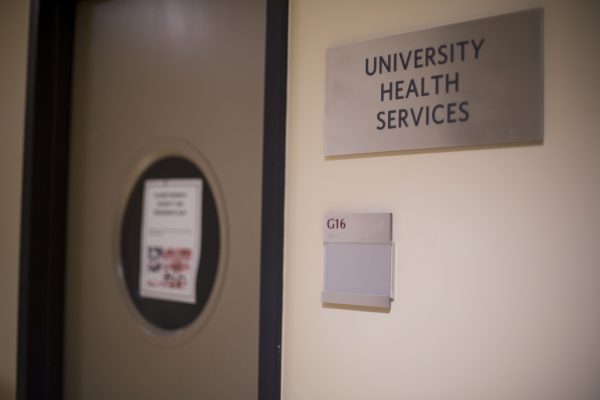A Look Inside the Fordham Health Center
February 24, 2017
“We live in a cesspool of germs. The winter flu I could handle. But strep throat on top of it? That [is] where I draw the line. So, I went to the [Fordham Health Center], they put me on antibiotics and I was better within a week. Modern science is a miracle,” recalled a Fordham College at Lincoln Center (FCLC) freshman, about his experience with the Fordham Health Center.
Jennifer Huang is a nurse practitioner certified in Adult Primary Care and Orthopedic Nursing at Fordham. Huang is one of many full-time nurse practitioners employed by Fordham University. According to Huang, the “most common tests performed are rapid strep, rapid flu, monospot, HIV, and [lab tests] such as CBC and STI checks.” She further added, “Students come [to the Fordham Health Center] for both acute and chronic health problems such as [the] cold, flu, acute pharyngitis, mononucleosis, viral infections, musculoskeletal conditions, hypertension, diabetes and thyroid disorders.”
When asked how Fordham accommodates students without insurance, Huang replied that “There [is] no charge for visits to the Health Center.” It should be noted, however, that there are limitations on the extent to which the Fordham Health Center can accommodate students. Huang said, “All laboratory charges incurred are the responsibility of the student. We do offer a contracted fee with Labcorp for students who do not have insurance or wish to pay out of pocket. Some prescriptive medications as well as over the counter medications are dispensed at a nominal fee.”
In some occasions when such issues come into play, the Fordham Health Center is forced to send patients to outside clinics so that they receive the care they need. One FCLC freshman who wished to stay anonymous was one of these patients. He went into the Health Center for an appointment regarding men’s health. He recalls, “I went to get a [check-up] back in October, a nurse practitioner saw me. She was nice and [did] the tests and gave me the address [of] a free clinic. She warned me that it [would] cost a little but she did not tell me how much.” At the second clinic, he was billed more than just “a little” and ended up having to pay out-of-pocket for the tests.
While the Fordham Health Center does offer a crucial service to students, it’s important to keep in mind that it is a college medical center, not a comprehensive health care clinic. As a result, there are going to be restrictions on what the Health Center can provide for its patients. However, when this is the case, students can still seek advice from the Health Center on where and who to go to for proper medical care.
Aside from general primary care, Fordham University’s Health Center offers services such as physical and laboratory exams, allergy maintenance, mental health and immunizations. Interestingly, one other service offered, which may be unbeknownst to many given that we attend a Jesuit University, is men and women’s health. “In all honestly, I really didn’t think that Fordham could administer tests for women’s health because it is a Jesuit school that has made it very clear it [does not] offer contraceptives to students, but that is a whole other matter,” discussed Alex Stoeckle, FCLC ’20.
While Fordham University does indeed pride itself on being a Jesuit Institution, it nevertheless offers its students an array of services for men and women’s health, such as sexually transmitted diseases (STD), pregnancy testing and gynecological examinations.
Located in the 140 West building, the Health Center (Room G-16) is available to students every day except Sundays. The hours vary, but in order to be seen, an appointment has to be made by phone. Breana Del Gatto, FCLC ’20, recalled, “I went to the health center because I was very lightheaded and dizzy. They asked for my health insurance card [and] I only had to wait an hour or so. This really sweet female doctor was very patient with me and thoroughly checked me out, she ended up giving me some tips to relieve my lightheadedness.”
College students, especially freshmen, are vulnerable to illnesses, given that they live within such close proximity to their peers. Huang concluded, “Students get sick [for] a variety of reasons, ranging from stress to living in closed quarters. I highly recommend they get their flu vaccine and meningitis vaccine especially if they are living in the dorms. Minimizing stress, adequate sleep, proper nutrition, exercise and avoidance of drugs, alcohol [and] tobacco can help in wellness.”
College students are stuck in a transition between adolescence and adulthood and among our newfound responsibilities is the need to take care of our mental and physical health. Fortunately, the Fordham Health Center is available to answer your questions, ease your qualms and heal your ailments.













